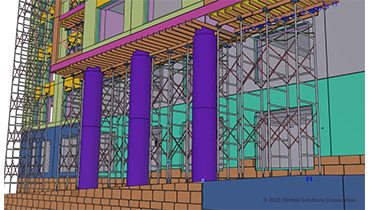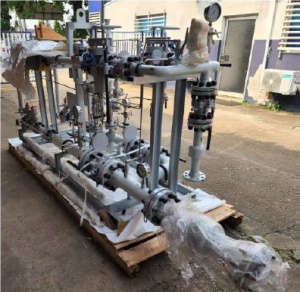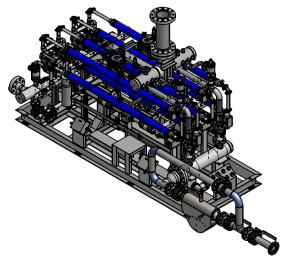


Consulting & Contracting
Engineering Designs
Manpower Resource Training
A combination of the talents of professionals with both construction & architectural expertise
XIDECON Consulting & Contracting Limited


renders quality and professional Engineering services to the Oil and Gas sector.
We have dedication to providing outstanding customer service and quality finished

Engineering Designs
Engineering design is the creative and systematic process of devising solutions to problems, fulfilling needs, or achieving objectives within the realm of engineering.

Technical Consulting
Technical consulting is a specialized form of advisory service provided by experts with in-depth knowledge and experience in a particular technical domain. It involves offering guidance, expertise, and solutions to clients facing complex technical challenges or seeking to leverage technology to achieve their business objectives.

Engineering Procurement
Engineering procurement is a critical aspect of project management and the overall engineering process, involving the acquisition of materials, equipment, and services necessary for the successful execution of a project.

Project Management
Project management is the cornerstone of achieving goals efficiently and effectively in any organization. It is a multifaceted discipline that involves planning, organizing, motivating, and controlling resources to achieve specific objectives.

Manpower Resource Management & Training
We offer a complete turnkey construction service for a wide variety of building and planning applications.

Fabrication, Construction & Installation
Fabrication, construction, and installation are three interconnected phases in the lifecycle of engineering projects, particularly in large-scale infrastructure, industrial, and construction projects. Each phase plays a critical role in transforming design concepts into tangible, operational assets.
At Xidecon Consulting & Contracting Limited, we maintain high level of standard and professionalism in all our dealings.
Workers
Completed Projects
Completed Projects
Branches
Our diverse project list includes commercial buildings and manufacturing structures

Construction Management
 Construction management is the process of planning, coordinating, and overseeing construction projects from inception to completion. It involves managing various aspects of the project, including budgeting, scheduling, quality control, safety, and risk management, to ensure that the project is completed successfully, on time, and within budget. Here's a breakdown of what construction management entails:
Construction management is the process of planning, coordinating, and overseeing construction projects from inception to completion. It involves managing various aspects of the project, including budgeting, scheduling, quality control, safety, and risk management, to ensure that the project is completed successfully, on time, and within budget. Here's a breakdown of what construction management entails:
- Project Planning: Construction management begins with thorough project planning. This includes defining project objectives, scope, and requirements, as well as establishing timelines, milestones, and budget constraints. Project managers work closely with clients, architects, engineers, and other stakeholders to develop a comprehensive project plan that outlines all necessary steps for successful project execution.
- Budgeting and Cost Control: Effective construction management involves developing and managing project budgets to ensure that resources are allocated appropriately and that costs are controlled throughout the project lifecycle. This includes estimating costs, tracking expenses, identifying cost-saving opportunities, and managing change orders to minimize budget overruns.
- Scheduling and Time Management: Construction projects are often subject to tight deadlines, making scheduling and time management critical aspects of construction management. Project managers create detailed construction schedules, coordinate work activities, monitor progress, and identify potential delays to ensure that the project stays on track and meets established deadlines.
- Procurement and Contract Management: Construction managers are responsible for procuring materials, equipment, and services required for the project and managing relationships with suppliers and subcontractors. This involves issuing requests for proposals (RFPs), negotiating contracts, reviewing bids, and overseeing the procurement process to ensure that goods and services are acquired in a timely and cost-effective manner.
- Quality Assurance and Control: Maintaining high-quality standards is essential in construction management to ensure that the finished project meets or exceeds client expectations. Construction managers implement quality assurance processes, conduct inspections, and perform quality control checks to verify that workmanship and materials meet specified standards and requirements.
- Safety Management: Construction sites can be hazardous environments, so safety management is a top priority in construction management. Project managers develop and implement safety plans, enforce safety regulations and protocols, conduct safety training for workers, and monitor site conditions to prevent accidents and injuries.
- Risk Management: Construction projects are inherently risky, with various factors that can impact project success, such as weather conditions, labor shortages, design changes, and unforeseen site conditions. Construction managers identify potential risks, assess their likelihood and impact, and develop risk mitigation strategies to minimize their effects on the project.
- Communication and Stakeholder Management: Effective communication is essential in construction management to ensure that all stakeholders are informed, engaged, and aligned throughout the project. Construction managers facilitate regular communication among project team members, clients, subcontractors, and other stakeholders to address concerns, resolve issues, and maintain positive relationships.


Manpower Resource Mgt Training


 In today's competitive business landscape, companies are constantly seeking ways to optimize their human resources to gain a competitive edge. One essential tool in achieving this goal is Manpower Resource Management (MRM) training. MRM training equips individuals and organizations with the skills and knowledge necessary to effectively manage their workforce, ensuring that they are aligned with organizational goals and objectives.
MRM training covers a wide range of topics, including recruitment and selection, performance management, training and development, employee relations, and workforce planning. By investing in MRM training, organizations can unlock numerous benefits:
In today's competitive business landscape, companies are constantly seeking ways to optimize their human resources to gain a competitive edge. One essential tool in achieving this goal is Manpower Resource Management (MRM) training. MRM training equips individuals and organizations with the skills and knowledge necessary to effectively manage their workforce, ensuring that they are aligned with organizational goals and objectives.
MRM training covers a wide range of topics, including recruitment and selection, performance management, training and development, employee relations, and workforce planning. By investing in MRM training, organizations can unlock numerous benefits:
- Strategic Workforce Planning: MRM training helps organizations align their workforce with their strategic goals. By understanding workforce trends and forecasting future needs, businesses can ensure they have the right talent in place to drive success.
- Improved Recruitment and Selection: Proper training in recruitment and selection techniques enables HR professionals to attract top talent that fits the organization's culture and requirements. This leads to higher employee satisfaction and retention rates.
- Enhanced Employee Performance: MRM training provides managers with the skills to effectively evaluate and manage employee performance. This includes setting clear expectations, providing constructive feedback, and implementing performance improvement plans when necessary.
- Effective Training and Development: Training programs tailored to employees' needs and organizational objectives can significantly enhance their skills and productivity. MRM training teaches HR professionals how to design and implement training initiatives that deliver tangible results.
- Better Employee Relations: By fostering a positive work environment and addressing employee concerns promptly, organizations can improve morale and reduce turnover. MRM training equips HR professionals with conflict resolution and communication skills to manage employee relations effectively.
- Compliance and Risk Management: Staying compliant with labor laws and regulations is crucial for businesses to avoid legal issues and penalties. MRM training ensures HR professionals are well-versed in employment laws and practices, reducing the risk of non-compliance.
- Cost Savings: Investing in MRM training can lead to long-term cost savings by reducing turnover, improving productivity, and mitigating risks associated with poor workforce management.
